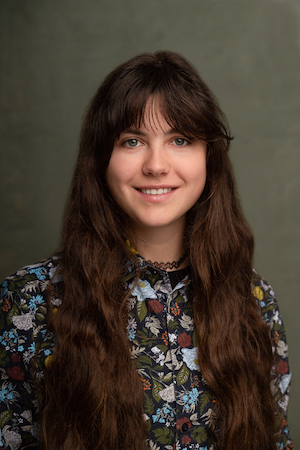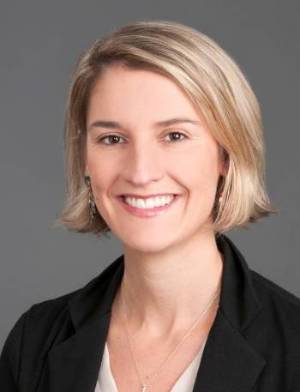
As a member of the first cohort of Winthrop’s Accelerated Master’s in Biology program, I became part of a close-knit community of graduate students and faculty that taught me how to really do science! The advanced discussion classes gave me valuable experience in reading and communicating scientific research; we went beyond the textbooks and straight to the source. Other classes included hands-on field and lab work, writing literature reviews, learning to use statistical analysis software, and developing our scientific inquiry skills. Additionally, I learned a lot about teaching through working as a graduate assistant. The excellent mentorship and community spirit among the faculty and students here at Winthrop can’t be matched. This program helped me start my career, and fueled my passion for research and teaching! Since graduating, I have been teaching several different biology classes and interviewing for PhD programs, and I can’t wait for what comes next!

My Winthrop experience equipped me with the tools to succeed in academia. At Winthrop, I was able to freely explore my interests while learning how to do science. My Masters work also made me a more competitive candidate for PhD programs and prepared me for the many challenges of a PhD. I also enjoyed comprehensive training in the biological sciences, which bolsters my ability to work across disciplines. Most importantly, I received exceptional mentorship in a field where listening often is underrated and undervalued. I cannot adequately express my debt of gratitude to my advisors, Drs. Janice Chism & Bill Rogers. Their unwavering support enabled me to overcome personal and professional challenges and exceed my loftiest goals. With these skills, strengths, and support, I now am well poised for an impactful career that will address important questions about health disparities.
After earning a Master's degree in Biology from Winthrop University in 2009, I began working at the US Environmental Protection Agency in Research Triangle Park, NC. I provide assistance in the Toxicology/Pharmacokinetics Branch. I have recently been accepted into a doctoral program in Physiological Sciences at the University of Arizona, Tucson. What attracted me to this degree is that the program takes an interdisciplinary approach to learning; I am excited to be able to continue my educational journey in the fall.
The extraordinary support of faculty and their genuine concern for the success of their students make the Biology MS program truly unique. Many of the graduate classes involved small group discussions. Hearing the perspectives of other graduate students and faculty on various topics taught me how to think and question like a scientist. This approach also encouraged communication and bonding with fellow graduate students. I highly recommend this program to creative students that harbor a desire to become true scientists. Currently, I am enrolled in the Marine Biomedicine program at the Medical University of South Carolina. I am part of a research lab that aims to answer important questions in the field of reproductive endocrinology. We use the American alligator as a sentinel species to study the effects of exposure to endocrine disrupting chemicals. On the weekends, I teach environmental education courses at the SEWEE Environmental Center, an interpretive center for the Cape Romain National Wildlife Refuge and Francis Marion National Forest.
Pooja Pardhanani, a graduate student in Dr. Laura Glasscock's lab, carries out an assay for her thesis work on prostate cancer.
Winthrop graduate student Amy Seidewand and a Peruvian colleague Marcos Tello carry out a primate conservation project in the ACRCTT reserve in the Peruvian Amazon.
Biology graduate student Lauren Frisoli presents the results of her master's research on the behavioral ecology of Peruvian saki monkeys at the American Society of Primatology meetings in San Diego, September 2009.
Winthrop graduate student Janie Manning carries out research on ethnobotany in the ACRCTT communal reserve in the Peruvian Amazon.
Dr. Bill Rogers and his graduate student Holly Cadmus collect data on Amazonian river dolphins in the ACRCTT reserve in Peru.
One of Dr. Laura Glasscock's graduate students, Kris Bennett, carries out research on the role of thrombomodulin in prostate cancer angiogenesis.
